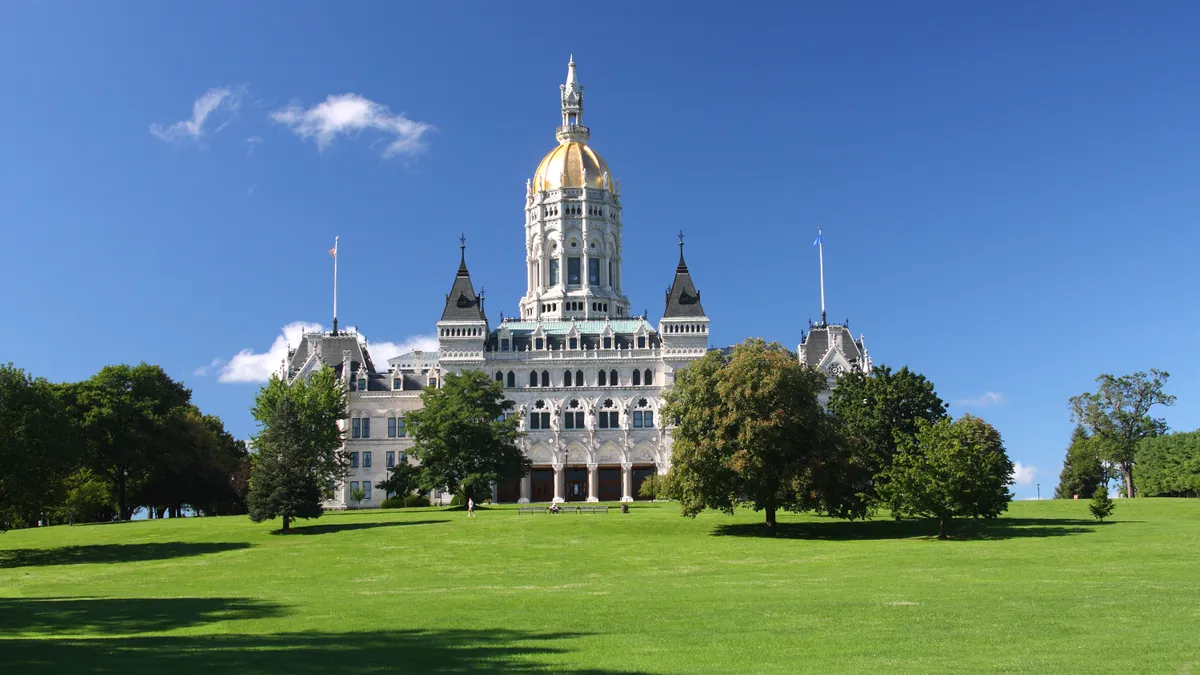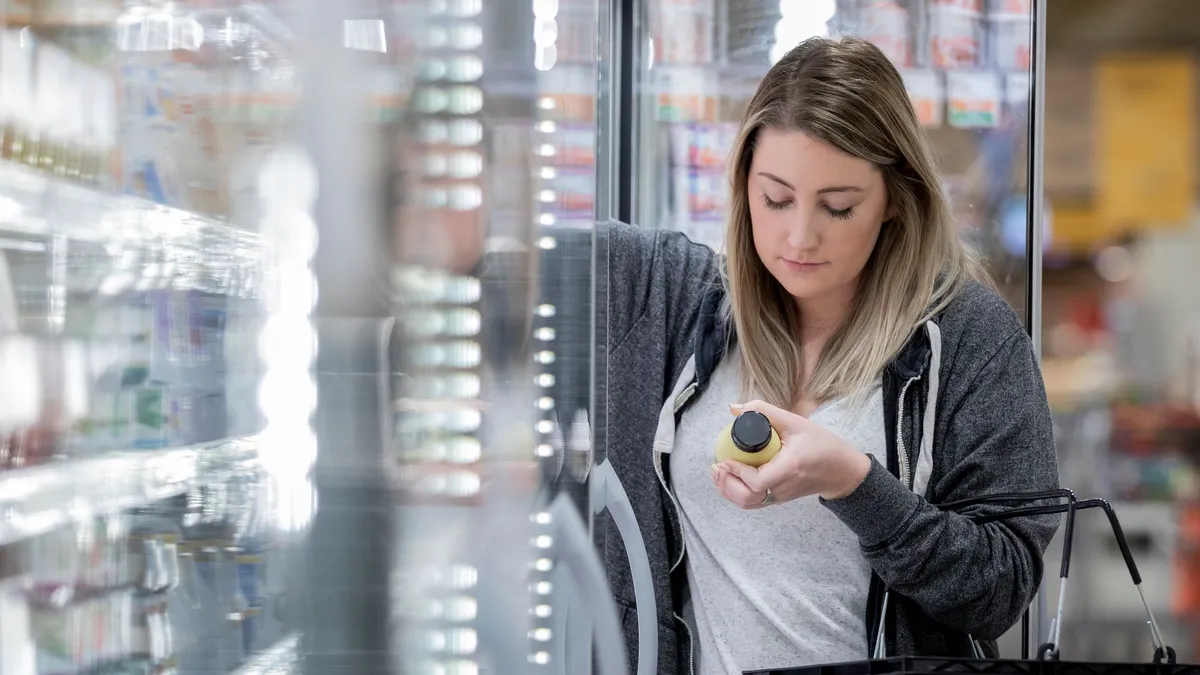Legislation that would require plastic bottles covered by Connecticut’s bottle bill to be formulated 25% with postconsumer recycled content by 2027 awaits Gov. Ned Lamont’s signature after it was passed by lawmakers last week.
Under HB-6664 — which was backed by the governor — that threshold would rise to 30% by 2032. The bill previously called for a 50% target by 2033 and was reportedly amended due to concerns about adequate feedstock. Supporters of bottle bills see them as an important way to gather enough material to meet brands’ recycled content commitments.
By the end of 2032 the state’s Department of Energy & Environmental Protection would have to submit a report with recommendations on future minimum PCR standards for these containers and potential ideas for applying content requirements to “other packaging or product categories.”
Producers, which include brand owners and manufacturers, must have a third party certify their containers’ recycled content. They would have to register with DEEP by April 1, 2026 and pay an initial $500 fee.
Beyond the recycled content mandates, the broader bill also addresses organics recycling and waste processing infrastructure. It does not include previously featured extended producer responsibility for packaging provisions.
Lamont said in January that the recycled content proposal was modeled after requirements in California, which also has a bottle bill. California’s AB 793, signed into law in 2020, requires that such containers include 15% PCR starting in 2022, rising to 25% by 2025 and 50% by 2030. In a separate example, New Jersey — which does not have a bottle bill — adopted a law in 2022 requiring 15% recycled content in most plastic beverage containers, a threshold set to increase by 5% every three years to reach 50% by 2045. Washington state adopted a similar law in 2021, which set a 15% recycled content threshold and aims to reach 50% in plastic beverage containers by 2031.
Connecticut is one of 10 U.S. states with a bottle bill, having enacted such a law in 1978. In 2021, Lamont signed a law expanding the types of containers accepted in the deposit return program come 2023, including adding containers for non-carbonated beverages such as teas, sports drinks and juices. That law also stipulates Connecticut will double its refund value from 5 cents to 10 cents starting in 2024.















